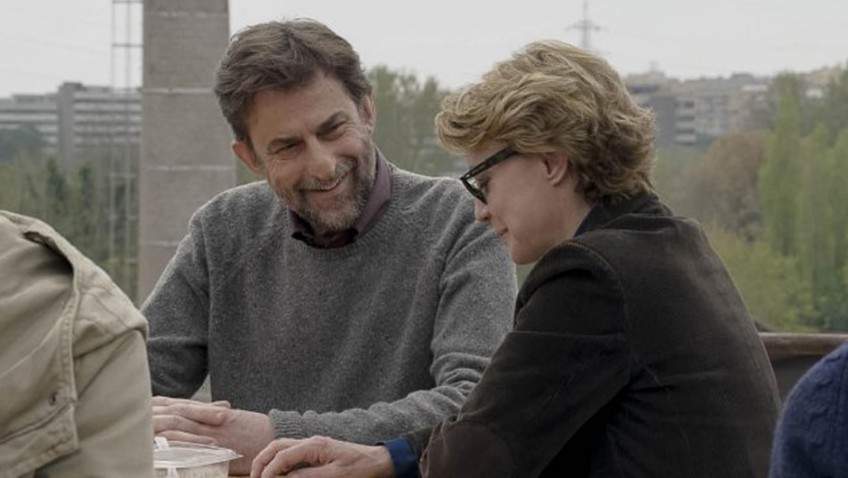Nanni Moretti returns to the theme of his greatest film, The Son’s Room (which won the Palm D’Or at Cannes in 2001): coming to terms with the death of a close family member while life around you somehow goes on. While Moretti appears in the autobiographical Mia Madre, centre stage is occupied by Margherita Buy as Daisy, a film director trying to make a film about industrial action in an Italian factory, while her hospitalised mother (Giulia Lazzarini) is dying. Despite some touches of poignancy and humour, and a stand-out performance from John Turturro as a celebrity American actor Daisy brings over to Italy, the film fails to engage us
Daisy tries to allocate time for her mother, Ada (Lazzarini), in hospital, but, unlike her brother (Moretti), who has quit his job to be a full time carer, Daisy’s attention is divided. Having recently separated from her partner who is still in her life, she struggles to help her teenage daughter Livia (Beatrice Mancini) grapple with adolescent romance and a rash decision to give up Latin. Only Ada, a former teacher, is keeping Livia engaged in her studies.
The biggest distraction is Daisy’s demanding job as a film director. In the film, the factory in which the film is set is sold to a multinational company and the company despatches a new managing director to cut costs. Daisy’s already difficult work-life balance is thrown into turmoil when the celebrity American actor Barry Huggins (John Turturro) arrives in Rome to portray the managing director, determine to implement lay-offs. Far from improving the shooting experience, Huggins’s problematic Italian, prima-donna temperament, and inability to remember his lines are making a dent in the budget.
Margherita Buy conveys Daisy’s inability to focus and the angst that this causes her convincingly and without histrionics, but it’s a role without any internal momentum and if the character goes on a journey it is not obvious. Turturro is terrific. He brightens up the film with the requisite humour his character demands, making the most of an otherwise lacklustre film-within-a-film story.
The film’s most poignant moment comes at the very end when Daisy realises – through the reaction of her mother’s indebted students and co-workers – that her mother was more to the world than a dying mother, and that her influence extended beyond her family. Daisy’s ability to look upon her mother as a person, rather than as a dying mother, for the first time is painful, but also enlightening.
Moretti shows the parents’ growing objectivity in the Son’s Room, too, when a hitchhiking girlfriend shows up at the grieving parent’s home and tells them about a side to their son that they barely knew. The difference is that The Son’s Room is a beautifully written, intense, compelling masterpiece whereas Mia Madre feels anaemic and half-baked. We might all experience the guilt, turmoil and sorrow of life with a dying mother at some point, but Mia Madre somehow fails to engage us.




